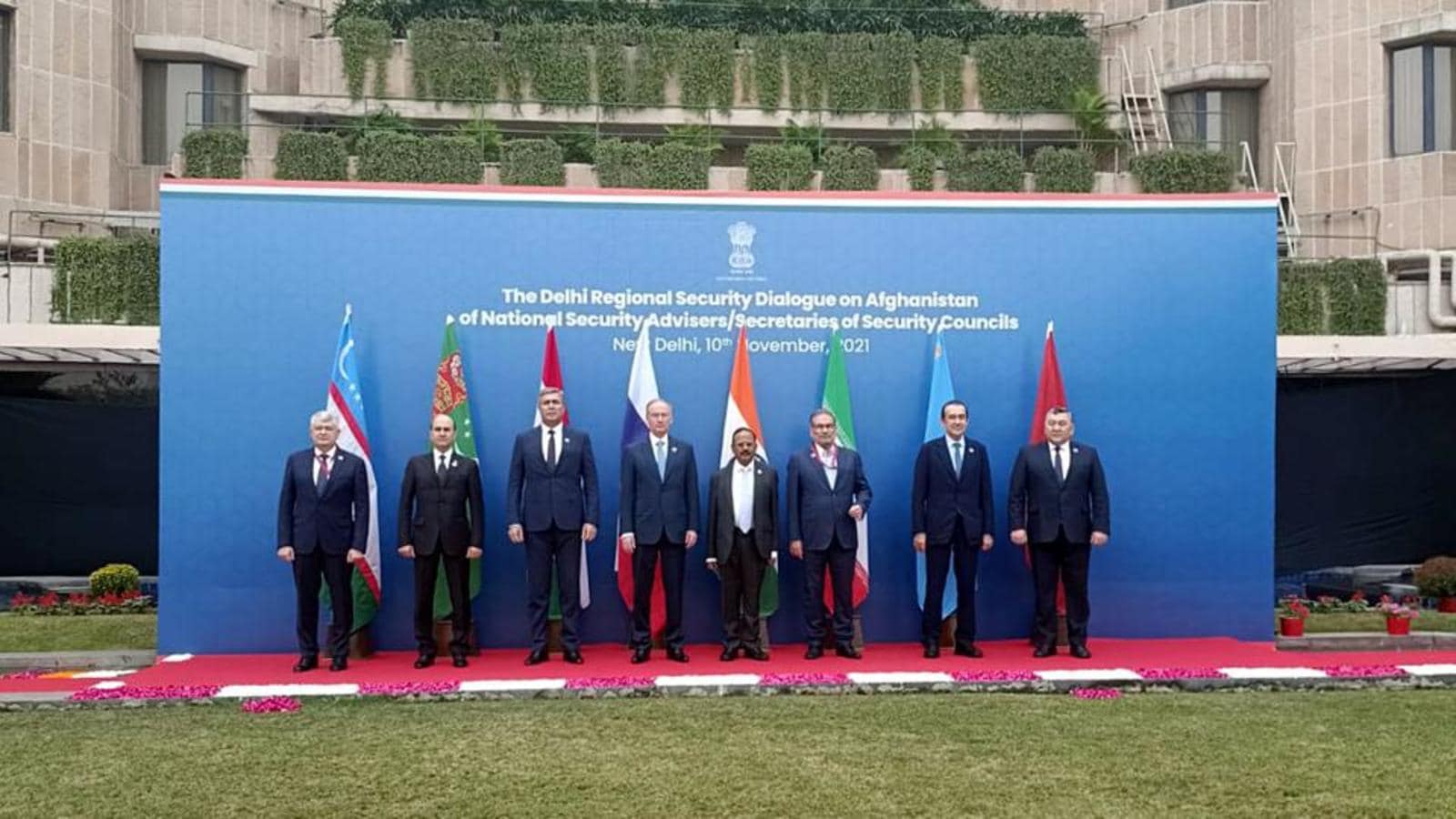The secretaries of the Iranian and Russian Security Councils have called on the region’s countries to devise solutions to regional challenges.
The statement was made as part of a meeting held on the sidelines of the Delhi Regional Security Dialogue on Afghanistan, a one-day event attended by representatives of India, Iran, Russia, Kazakhstan, Kyrgyzstan, Tajikistan, Turkmenistan, and Uzbekistan.
The secretary of Iran’s Supreme National Security Council, Ali Shamkhani, told his Russian counterpart Nikolai Patrushev that the way out of the region’s many security crises was to put “an end to the interventions by extra-regional actors, particularly the US.” He also believes regional countries’ joint efforts to devise local solutions could be a key.
Shamkhani said that both Iran and Russia had been targeted by US “plots” and sanctions and that enhanced cooperation could “collapse the illegal and inhumane system of the US sanctions.”
He then added that the further strengthening of the Iranian-Russian ties in “all fields, particularly security and the continuation of the fight against terrorism,” would have a “decisive” role in regional security.
For his turn, the secretary of Russia’s Security Council, Nikolai Patrushev praised the developing ties between the two countries, deeming them to the benefit of both nations. He described regional cooperation as “not a choice, but an indispensable path toward sustainable security in the region.”
As regards to recent developments in Afghanistan, Shamkhani said that an “inclusive government” was the only way to manage Afghanistan’s ethnic and religious diversity. The Russian Security Council secretary, in his turn, described coordination between regional countries as a stabilizing factor for Afghanistan.
Upon arrival at New Delhi airport to participate in the conference, Shamkhani said that “even though America was expelled from Afghanistan after 20 years of aggression and occupation of that country, it continues to create a crisis because of its tension-seeking strategy.”
Addressing the Delhi Regional Security Dialogue, Iran’s official called for international pressure on the United States to release Afghan assets it froze after the Taliban seized power in Kabul this August. He further added that the money would benefit the people of Afghanistan.
Shamkhani also alleged that “the presence and growth” of the Islamic State terrorist group (ISIL/ISIS) in Afghanistan “could be part of the occupiers’ plan for the region.”
Humanitarian groups have called on the US to release billions of dollars of Afghan assets, including gold and foreign currency, held in the United States. At the same time, the US says it has no plans to unfreeze the assets. The Afghan central bank reportedly has around $10bn in assets overseas.
Iran and Afghanistan share a 570-mile border that includes several lucrative trade routes. Both Iran and the Taliban share an antipathy toward the United States and the west in general. After the rise of the Islamic State terror group in Afghanistan in 2015, Iran reportedly increased cooperation with the Taliban to secure its border, much of which lies in areas under Taliban control.
The Taliban launched massive offensive recapturing swaths of land, including major cities and provinces, simultaneously with the withdrawal of the US servicemen. The group’s return to power after being ousted in 2001 finished with the fall of the capital Kabul on August 15, 2021. President Ashraf Gani fled the country to avoid what he claimed could be “bloodshed.” The militant group changed Afghanistan’s name for the “Islamic Emirate of Afghanistan,” promising to establish an inclusive government in line with the Islamic sharia law.







 Azerbaijan and Armenia started the process of demarcation of their border on Tuesday, with the installation of the first border markers based on ge...
Azerbaijan and Armenia started the process of demarcation of their border on Tuesday, with the installation of the first border markers based on ge...
 Armenian sappers commenced on Monday mine-clearance operations in the territories adjacent to the Saint Mary Church in village of Voskepar (Armenia...
Armenian sappers commenced on Monday mine-clearance operations in the territories adjacent to the Saint Mary Church in village of Voskepar (Armenia...
 Iran and Pakistan have signed eight cooperation documents in various fields, and agreed to strengthen ties to fight terrorism in the region.
Iran and Pakistan have signed eight cooperation documents in various fields, and agreed to strengthen ties to fight terrorism in the region.
 President Aliyev emphasized the critical role of the North-South Transport Corridor in fostering transport cooperation between Azerbaijan and Russi...
President Aliyev emphasized the critical role of the North-South Transport Corridor in fostering transport cooperation between Azerbaijan and Russi...



